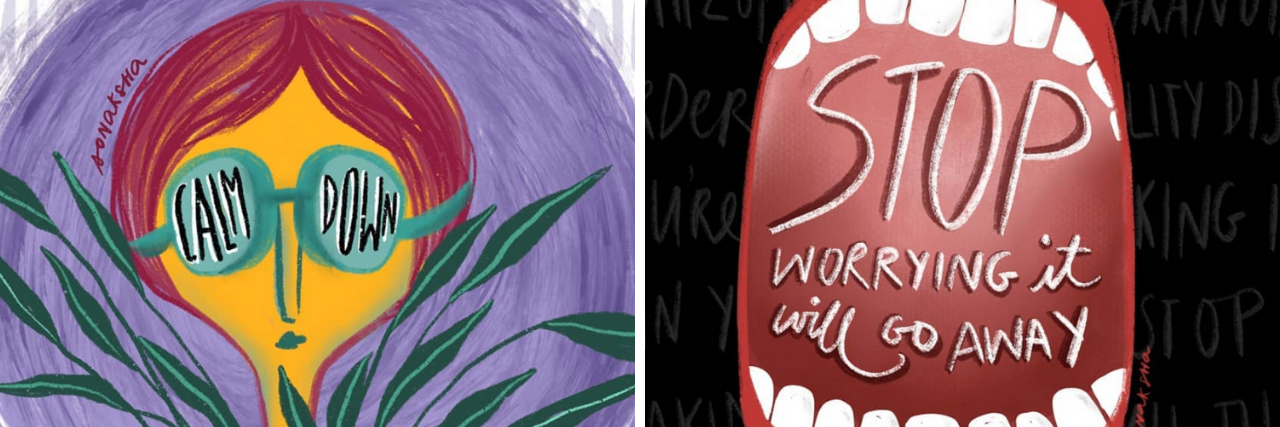Artist Sonaksha Iyengar Creates Instagram Series on Unsolicited Mental Health Advice
Living with a mental illness is tough on its own, but add unsolicited, ignorant advice to the mix, and you can feel alone and misunderstood as well. Sonaksha Iyengar, an artist based in Bengaluru, India, is calling out these ill-advised comments with a new series of illustrations on Instagram.
“When I began receiving this advice, it added to my already existing guilt for being ill,” Iyengar told The Mighty. “It led to spiraling thoughts of hating myself, feeling like I’m an ungrateful person, feeling like I’m not enough or not even trying to be better. Especially since living with a mental illness can make one feel so alone.”
Iyengar’s series, “Public Prescription,” is a criticism of the unsolicited “advice” people give others with mental illness.
“Sometimes mental illnesses might not manifest with physical symptoms and people automatically assume that just because they can’t ‘see’ it, it doesn’t exist,” Iyengar said. “Often these pieces of advice come from a place of ignorance, and that is something I hope to address with this series.”
She said she most often hears “get over it” or “others have it worse” when she talks about living with anxiety and depression. She decided to create the series after talking to others who had heard similar comments.
“There seems to be this constant need to compare pain and put it on a scale,” Iyengar said. “We’ve been geared to constantly compete and that seems to be spilling over.”
Iyengar hopes the series reminds others they are not alone. She also wants those who dole out “advice” to understand that their comments can be dangerous. She’s already had one person message her on Instagram to say she forwarded the series to family, so they could talk about her mental health in a better way.
This isn’t the first mental health illustrative series from Iyengar. In 2017, Iyengar created “A to Z of Mental Health,” which illustrated different conditions as well as busted myths about each.

